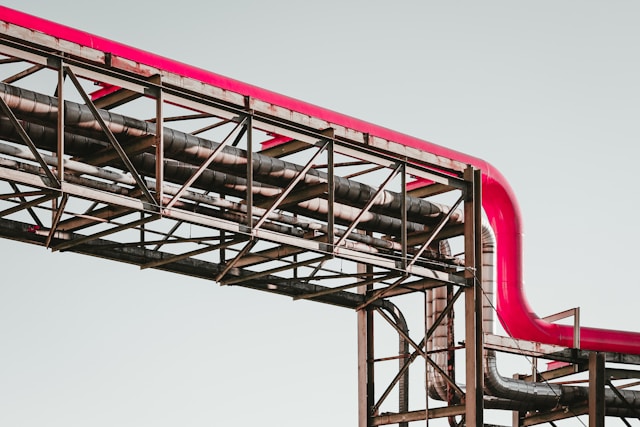In a big boost for the green hydrogen business, Germany will build the world’s longest hydrogen pipeline by 2032, with parts of the network operational by next year, the Federal Network Agency (BNetzA), a German energy body, confirmed on Oct. 22.
The approved core network will be 9,040 kilometers (5,617 miles) in length. Around 60% of the network will be made up of converted natural gas pipelines, and the investment will total €18.9 billion according FNB Gas, an association of German gas transmission companies. Every federal German state will be connected by this pipeline.
Only gas pipes no longer needed for transportation of fossil fuel will be converted, while an extra €2 billion will be invested in additional gas pipelines to ensure security of supply, said BNetzA head Klaus Müller at a press conference announcing the network.
The planned pipeline network is seen as a significant step towards Germany’s goal to be net-zero emissions by 2045, a target that was set back in June 2021. That goal has been under some criticism for the lack of follow-through by the German government, but the pipeline is seen as a major step towards emissions reduction.
The Climate Action Tracker, a group that tracks every country’s effects on the climate and their goals for a cleaner environment, currently gives Germany an average chance to achieve their net-zero goal.
Hydrogen is one of the alternative fuel sources that researchers are looking to use for the clean energy transition because the waste produced by using hydrogen fuel is only water. Hydrogen also has the added benefit of not being weather dependent, therefore avoiding the typical “duck-shaped” energy output of solar energy.
The drawback to hydrogen fuel is that current methods for production usually involve fossil fuel energy, but researchers are constantly finding new ways to make the process more efficient and clean.
Connecting to Europe
“The future integration of the core network into a European hydrogen network is in line with the Federal Government’s National Hydrogen Strategy. Cooperation projects between the relevant neighbouring countries will be established and deepened along the hydrogen import corridors,” said the Federal Ministry of Economic Affairs and Climate Action.
Germany now joins Denmark, the United Kingdom, and Portugal as a leader in hydrogen pipeline construction, according to the World Economic Forum.
“With the hydrogen core network, we are laying the foundation for a new energy system,” Thomas Gößmann, Chairman of the Board of FNB Gas, said to Offshore Energy. “It offers a historic opportunity for Germany to position itself as a pioneer in the hydrogen economy.”
There has been some criticism of the plan by the southern German states, who have said the pipeline is unfairly concentrated in northern Germany. A survey by regional representatives showed that the southern states fear they will be left behind as the rest of Germany continues with the energy transition according to Clean Energy Wire.
“If one of the economically strongest federal states is neglected in this way, Germany’s economic strength as a whole will be jeopardized,” Nicole Hoffmeister-Kraut, economic affairs minister in the southern state of Baden-Württemberg told Clean Energy Wire.














